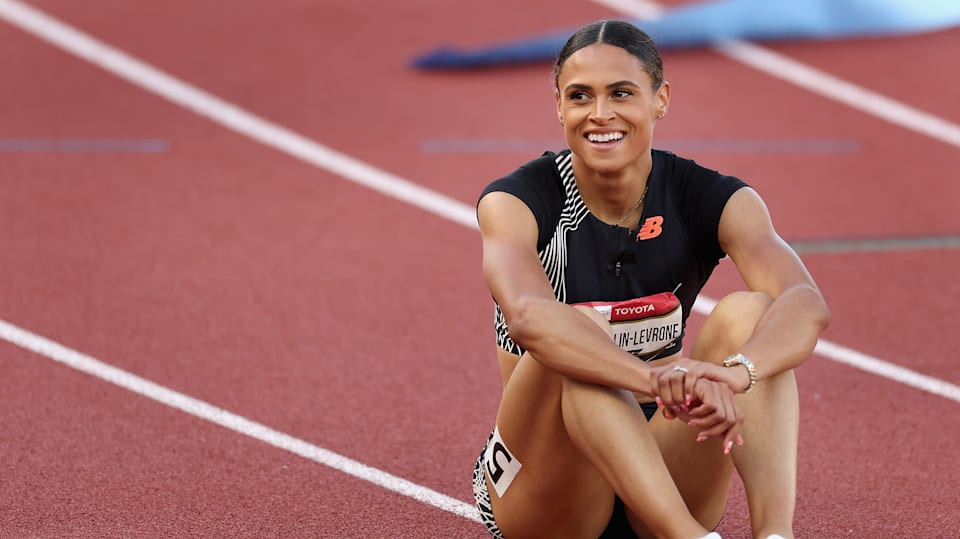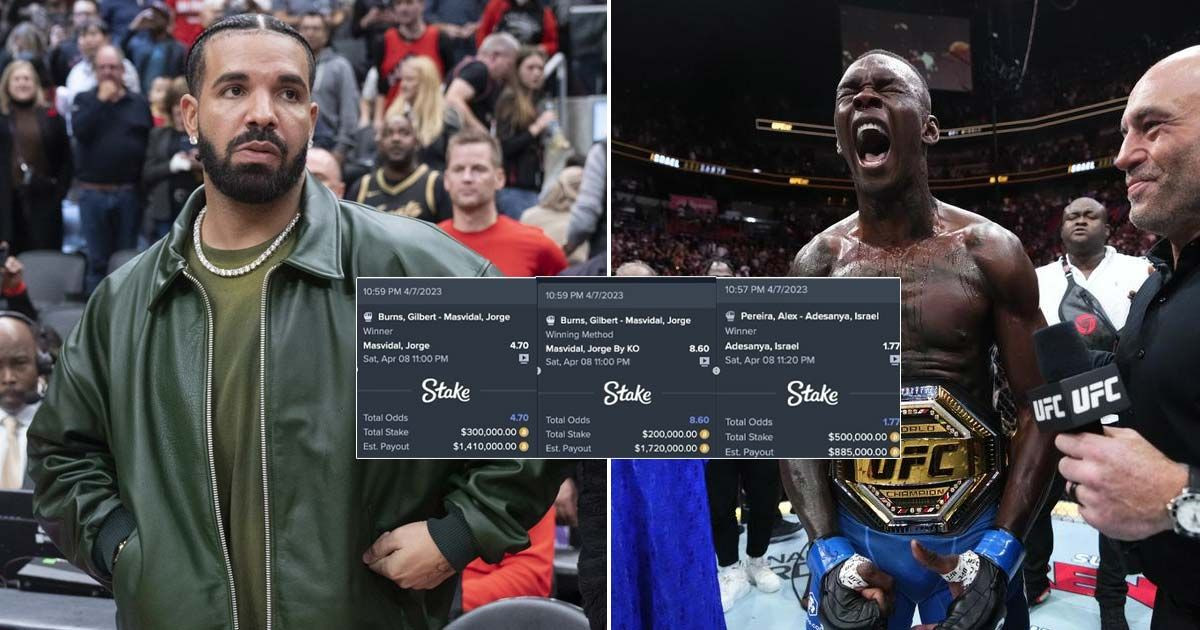It will be one of the must-watch events of the entire Olympic Games Paris 2024. Reigning Olympic champion and world record holder Sydney McLaughlin-Levrone will go head-to-head with the reigning world champion Femke Bol in the final of the women's 400m hurdles, after both women posted sub-53 times in Tuesday's (6 August) semi-final round. But both McLaughlin-Levrone and Bol have gone under 51 seconds in recent weeks, with McLaughlin-Levrone lowering her own world record at the U.S. Olympic Trials in late June with a 50.65 and Bol running a 50.95 on 14 July in Switzerland. Neither star athlete was pushed too hard in her respective heat, the American going 52.13 in the second semi, while Bol claimed the third and final semi in 52.67. McLaughlin-Levrone's teammate Anna Cockrell was the only other semi-finallist to break the 53-second mark, going 52.90 to give Bol a push down the straightaway. France's Louise Maraval got the loudest cheer of the night, the home hope surging after the final hurdle to book a place in her first Olympic final, her 53.83 still well back of McLaughlin-Levrone. It's set to be the first match-up of McLaughlin-Levrone and Bol since the World Championships in 2022, when Sydney lowered the world record for a fourth time in her career. The quartet of McLaughlin-Levrone, Bol, Cockrell and Maraval are set to be joined by Rushell Clayton and Shiann Salmon of Jamaica, USA's Jasmine Jones, and Canadian Savannah Sutherland.
The Pressure of High Expectations
The problem with exceeding expectations is that new expectations crop up in place of the old ones. This is the reality facing Sydney McLaughlin-Levrone, the defending Olympic gold medalist in the women’s 400-meter hurdles. In all five of the championship races she’s run over the past three years — the U.S. championships, world championships, and Olympic Games — the 25-year-old has broken the world record. She set her last one, 50.65 seconds, in June while winning the U.S. Olympic Trials by nearly two full seconds, an unheard-of margin of victory. Amazingly, this time would have been good for seventh place in the 2020 Tokyo Olympics women’s flat 400 meters — that is, a race run without ten hurdles in the way.
The expectation now is that McLaughlin-Levrone will break yet another world record at this year’s Olympics, quite possibly finishing under 50 seconds in Thursday’s final. To get within a few strides of this extraordinary feat, though, McLaughlin-Levrone first had to lose — which took her years to do.
McLaughlin-Levrone's Journey to the Top
As a freshman at Union Catholic High School in Scotch Plains, New Jersey, McLaughlin-Levrone (whose surname was McLaughlin until she married Andre Levrone Jr. in 2022) arrived nearly fully grown, at five-foot-eight, one inch shorter than she stands today. She was also very fast. Right away, with seemingly no effort at all, she ran training times that Mike McCabe, who coached McLaughlin-Levrone throughout high school, would expect only from state champions. At the end of her freshman year, when she was 14, McLaughlin-Levrone finished second in the 400-meter hurdles at the USA Track & Field Junior National Championships, losing by less than a quarter of a second to that year’s NCAA champion — who was five years her senior.
“We got to a point after a year or two of high school where I really thought she might be the best sprinter ever. And I still believe that’s where she’s going,” McCabe says. At that point of her high-school career, he continues, “I became more cautious with her, and I would lessen the intensity of some of her workouts because she could still race very fast without doing a ton of work. And I wanted to preserve that for college and her post-collegiate career.” This didn’t hamper McLaughlin-Levrone’s high-school performances. After fewer than a handful of defeats in her freshman year, she never lost a high-school race again.
McLaughlin-Levrone’s freshman year of college, at the University of Kentucky, wasn’t as easy; it took her time to adjust to the enormous pressure and competitiveness of NCAA sports. She joined a training group that included professional athletes such as Kendra Harrison, then the 100-meter hurdles world-record holder. McLaughlin-Levrone improved her personal best at the 400-meter hurdles by more than a second that year, set the collegiate record, and won the NCAA championship, but she didn’t gel with her coach, Edrick Floréal. Floréal thought McLaughlin-Levrone had mastered neither the event’s multiple linked components nor the work ethic needed for an athlete at her elite level. “You get an athlete that good, you have expectations that the person is gonna be educated at a certain level,” he told the Dayton Daily News near the end of the season.
McLaughlin-Levrone made strides in both directions after going pro at the end of the season. In the fall of 2018, she moved to Los Angeles, where she began to train with Joanna Hayes, the 2004 Olympic gold medalist in the 100-meter hurdles. She was then introduced to Ralph Mann, the silver medalist in the 400-meter hurdles at the 1972 Olympics, who had worked with Hayes before. After his running career, Mann got a Ph.D. in sports biomechanics, and he specialized in hurdling. The history of track and field is littered with technical obsessives. Bill Bowerman famously created the contemporary long-distance running shoe in 1974 after experimenting with his wife’s waffle iron. Seventy-year-old Bobby Kersee, who has coached some of the greatest sprinters in American history, including Florence Griffith-Joyner and Allyson Felix, refers to the track as his “lab,” and his runners call him the “mad scientist.” Mann’s work in biomechanics fits within this tradition. He spent decades filming the best sprinters in the world and creating computer models that used a glorified stick figure to define the most efficient running form for sprinters and hurdlers. When he came to L.A. to meet McLaughlin-Levrone, Mann recorded video of her running, superimposed it over his ideal sprinter, and compared the results.
“There are two types of athletes in the 400-meter hurdles,” Mann said by phone from his home in Bend, Oregon. “The first group is what we call the running jumpers.” These athletes enter a race with no gameplan and rely solely on their speed and natural ability. When they reach a hurdle, they often have to stutter-step or overstride because they’ve allowed themselves either too much room or too little. They never know which leg, their dominant or nondominant one, they’ll employ to clear the hurdle. Then there are the technicians. These runners know exactly how many steps they’ll take to the first hurdle and how many they’ll take between hurdles in the middle of the race, and at the end, when they begin to tire and fatigue. McLaughlin-Levrone, he said, fit the first group. “Sydney had problems. She couldn’t hurdle with her opposite leg. With her primary leg, she was mediocre at best. And her training wasn’t to the point where she could handle the last three hurdles.”
“The problem with this is that no athlete likes to work on their weaknesses,” Mann added. “What convinced her is that she hates to lose.”
At the U.S. National Championships in 2019, defending Olympic champion Dalilah Muhammad set a world record while beating McLaughlin-Levrone by more than half a second. It was one of the worst margins of defeat she’d ever suffered. Two months later, at the world championships, McLaughlin-Levrone broke the world record herself. But Muhammad did too, beating McLaughlin-Levrone by .07 of a second.
Mann was on the track’s infield that day, and after the race was over, McLaughlin-Levrone approached. “What the hell do I have to do to beat her?” she asked him. “It’s kind of hard to tell the athlete that just ran the second-fastest time of all time in the event that something’s wrong,” he says. But he did. She shook her head and walked away.
“In order to find yourself, you must lose,” McLaughlin-Levrone wrote on Instagram later that day. “Lose races, lose people, lose hope.” When the Olympics were postponed the following year because of the COVID-19 pandemic, McLaughlin-Levrone cut ties with Hayes and hired the mad scientist, Bobby Kersee, as her new coach.
Mann met with Kersee and McLaughlin-Levrone in L.A. four or five times that year. He and Kersee had dinner before he left town after the first visit and discussed the situation. “Jesus,” they said to each other, according to Mann. “This is incredible. She’s got so many things wrong. If she can get this stuff and we can fix these things, it’s going to be a miracle.”
The next day, Kersee and McLaughlin-Levrone got to work. The most important step a hurdler takes is the one just before they leap, and McLaughlin-Levrone had trouble landing that step in the right spot. She and Kersee worked on it in practice endlessly, with Kersee tasking his assistants to place tape on the track in front of hurdles to mark the spot McLaughlin-Levrone had to hit. “He used a lot of tape,” Mann says.
Kersee began to enter McLaughlin-Levrone in 100-meter hurdle races, and he made her run each hurdle with her nondominant leg until she’d improved enough that she could do it seamlessly over the course of 400 meters. “That resulted in her getting her ass kicked a lot of times,” Mann says. “She hated it, but she did it anyway.”
Kersee worked on her start, on her hurdling form, on her stride. And he set up her race plan to run 14 steps in between each of the first seven hurdles, alternating the leg she hurdles with, and then switching to 15 steps for the final three hurdles, using her dominant leg.
When she faced off against Muhammad at the Olympic trials in 2021, McLaughlin-Levrone finally turned the tables and won, setting a new world record in the process. In Tokyo later that summer, the pair ran one of the greatest races in Olympics history, with both of them crushing the previous world record again. McLaughlin-Levrone passed Muhammad in the race’s final 20 meters to win by .12 of a second.
For McLaughlin-Levrone, the victory seemed to reset what was possible in the event. At the world championships the following year, McLaughlin-Levrone broke her world record yet again by an awe-inspiring .78 of a second.
“Iron sharpens iron,” McLaughlin-Levrone said before the Tokyo Olympics final, referring to the way her competition with Muhammad had brought out the best in her. She faces another formidable rival in Paris: 24-year-old Dutch standout Femke Bol. To compete with McLaughlin-Levrone, Bol has reduced her steps in between the race’s first seven hurdles to 14, just as McLaughlin-Levrone did, and she has lowered her personal best to within three-tenths of a second of McLaughlin-Levrone’s.
McLaughlin-Levrone’s dominant performance in Tuesday’s semifinal set the stage for a Thursday final that could surpass even the 2020 Olympics duel. Those pesky expectations, in other words, are running high. But McLaughlin-Levrone has put in enough hard work and won enough hard races that it would hardly be a surprise if she leapt over them yet again.
Sydney McLaughlin-Levrone's Rise to Stardom
Sydney McLaughlin-Levrone, a 24-year-old track and field athlete, is a rising star in the world of athletics. Her journey to the top has been marked by her determination, hard work, and unwavering focus. The young athlete holds the 400m hurdles world record of 50.65 seconds set at the U.S. Olympic Trials in Oregon and the Olympic record of 51.46 seconds from the Tokyo Olympics in 2021. She is a three-time Olympian, debuting at Rio in 2016 and making the semifinal in the 400m hurdles. At Tokyo, McLaughlin-Levrone took home a pair of gold medals, winning the 400m hurdles and the 4x400m relay. She is also a three-time SEC and NCAA champion in the 400m hurdles, currently holding the collegiate record. In 2022, McLaughlin-Levrone married Andre Levrone Jr., taking on his surname and further solidifying her commitment to her athletic journey.
The Road to the Paris Olympics
The 2024 Paris Olympics will be McLaughlin-Levrone's third Olympics. She is expected to compete in the women's 400m hurdles and the women's 4x400m relay, the events she and the United States are defending gold medalists in coming into Paris. She is a favorite to return to the top of the podium in the 400m hurdles, but she will face stiff competition from Femke Bol of the Netherlands. Bol is the reigning world champion and is quickly closing the gap on McLaughlin-Levrone. The two athletes are expected to put on a show in the final, which is scheduled for Thursday, August 8 at 3:25 ET. The race will be broadcast live on NBC and Peacock. The 4x400m relay is also a highly anticipated event, as the United States is looking to win its eighth consecutive gold medal. The relay is a team event in which four athletes from the same country run in a relay format, each racing 400 meters. For the first 1.25 laps, each country must stay in their own lane, but can converge on the inside lane on the back stretch of the second lap. Runners have 20 meters to pass the baton. Athletes can be disqualified for dropping the baton, for passing the baton out of the designated exchange/takeover zone, or for crossing into another lane. At most, 16 countries will qualify for the first round and then eight teams will compete in the finals.
The Future is Bright
McLaughlin-Levrone's journey to the top has been marked by her determination, hard work, and unwavering focus. She is a role model for young athletes around the world, proving that anything is possible with hard work and dedication. Her future looks bright, and she is poised to continue dominating the world of athletics for years to come.

















